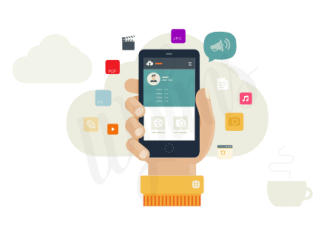
Learning management systems (LMS) have been there for decades and never before their importance has been realised like this and we’re just getting started.
Have you ever tried an LMS for yourself or you are still waiting to understand, how an LMS exactly works and what are its benefits and why you should even consider moving to a LMS platform?
The job of an LMS is to provide an overall integrated learning and feedback experience to its users. Let’s take a quick look at the five best benefits of using a modern LMS(learning management system) which you would not find in any other system like memberships, classroom or subscription based learning.

Personalised and Adaptive learning experience
Everybody is a Genius. But If You Judge a Fish by Its Ability to Climb a Tree, It Will Live Its Whole Life Believing that It is Stupid.
Albert einstien
Modern LMS’s provide a personalised learning experience. It means that a user can revisit any topic any number of times without the need of an instructor. So a slow slow learner grabs all the relevant points as well as a fast learner about a subject. Unlike virtual classrooms or physical tutoring, where each and every student gets equal attention with the courses, LMS’s make sure that people get adequate importance based on their learning level.
A modern LMS provides an adaptive learning experience based on user’s capability level.What this means is that not only a student can study at their own pace, the course curriculum itself adapts and modifies based on user progress. So, for a certain program a fast learner might see lesser topics than a slow learner. Moreover concepts like Learning Paths or Blended Learning cross boundaries of traditional course based learning and focus on achieving objectives which are not bound to a particular course or a particular set of steps.
Comprehensive reporting and activity tracking

The main benefit of using an LMS vs any other educational system like memberships and live classes is that they do a comprehensive tracking of user activities. Because of this, they are capable of providing a huge variety of reports for analysis.
This acts as a feedback mechanism for students on how they’re performing in the courses as well as for the instructor on how their courses are being scored by students. Modern LMS’s based on TinCan or xAPI even tracking activities outside the LMS system and record them in Learning record stores (LRS’s). The reporting is not only limited to Who completed what and got how much score, it also includes what choices and decisions were made by a user. This is really valuable data as it gives an insight on learner’s activity and behaviour.
The LMS conforming to TinCan API guarantee that you do not lose the activity data which ever LMS platform you use, so the activity records are portable across LMS’s / LRS’s secured. In such LMS’s there is either an inbuilt content editing system (like in WPLMS ) or you create course content in “Content editing platforms” and embed the courses in the LMS which then track the activities on a record store.
Communication and Collaboration

IMO, this should be one of the biggest factor on how to chose an LMS. What communication channels it supports, can students interact with each other, can they consult instructor on topics.
Peer learning has been known as the best method for learning where students help each other out because unlike instructors they are able to understand the doubts the other student can have. A community based learning experience should be an essential part of LMS. This still remains a big area which is still unexplored by many LMS’s. This can give vital insights on improving the course structure and a feedback system for instructors as well. Group activities which require a collaborative effort to achieve an objective.
Modern communication techniques like push notifications work even outside of a LMS system and even make a connection even when the user is not logged in. One should look for features like Live chat, push notifications, custom groups, files sharing, forums and community in LMS.
Gamification and Rewards

Engaging students and making learning a fun exercise. Modern LMS’s provide an efficient rewarding and gamification options which engage users into learning.
Gamification in LMS’s are support mostly in form of Badges, Certificates or Points. Rewards on activities encourage users into continuing the activity and reaching further levels to achieve more, just like in a game. Instructors can reward users on completing a unit, watching a video, completing a quiz or excelling in a quiz.
New concepts like “Card based learning” use the gamification features to a great effect. By giving user small card based concepts and then rewarding them on achieving objectives.
Flexibility, Security and Robustness

With all that being said, every business is different and have different set of requirements for Learning activities.
An LMS should be able to adapt to your requirements and not vice-versa. And while adapting it should be able to maintain its quality. As modern technologies evolve new ways of exploiting sites and systems emerge. An LMS should maintain best of the security standards and still maintain its flexibility, so that after years down the line you’re not forced to change the software because there was an unfortunate security leak. Open source systems work best at that as they have their own communities to track any security loop holes.
There is no doubt that LMS’s have proven their point in providing
